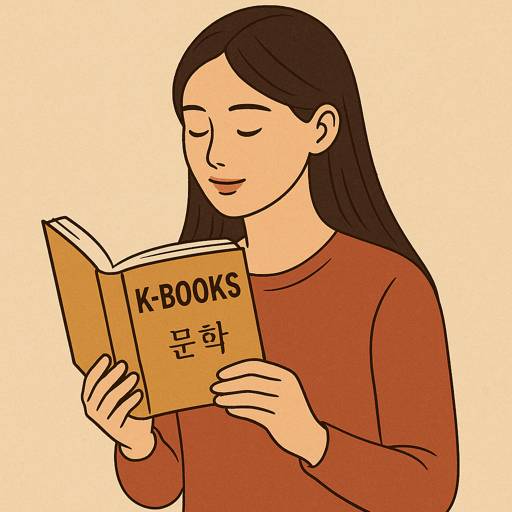Introduction: A Voice That Transcends Borders
In the world of contemporary literature, few Korean writers have made as profound an international impact as Han Kang. Han is best known for her haunting novel The Vegetarian. Her work explores themes of trauma, the human body, violence, and silence. These themes are often portrayed through a lens that is poetic, unsettling, and deeply introspective.
Han Kang’s literary voice echoes far beyond the borders of South Korea. She has emerged as one of the most important global literary figures of the 21st century. This article dives deep into her writing, achievements, and why her work continues to resonate with readers around the world.
Early Life and Background
Han Kang was born in Gwangju, South Korea in 1970, but moved to Seoul at the age of ten. She is the daughter of Han Seung-won, a prominent novelist himself, and was raised in a household steeped in literature.
She studied Korean Literature at Yonsei University and initially began her career writing poetry. Her transition into fiction came in the 1990s. She published short stories and began developing her now-signature style. Her style is lyrical, restrained, and emotionally piercing.
International Breakthrough: “The Vegetarian”
Han Kang had published several works in Korea before. Her global breakthrough came in 2016. This happened when the English translation of The Vegetarian — by Deborah Smith — won the Man Booker International Prize.
About the Novel:
- Originally published in Korean in 2007.
- Tells the story of Yeong-hye, a woman who decides to stop eating meat in a rigid, patriarchal society.
- The narrative is divided into three parts. Each part is told from a different point of view: her husband, her brother-in-law, and her sister.
- The novel explores autonomy, societal control, mental illness, and the physical body as a site of protest.
Global Impact:
- Translated into over 20 languages.
- Praised for its elegant, haunting prose and philosophical depth.
- Sparked international conversations about feminism, resistance, and the complexities of choice.
Other Notable Works
1. “Human Acts” (2014)
- Set against the backdrop of the 1980 Gwangju Uprising, a pro-democracy movement violently suppressed by the military.
- Follows the death of a young boy and the ripple effects it causes through time and space.
- Offers a meditation on state violence, collective trauma, and the resilience of memory.
- Widely acclaimed for its courage and moral clarity.
2. “The White Book” (2016)
- A hybrid of poetry, essay, and fiction.
- Inspired by the death of Han’s sister shortly after birth.
- Uses the motif of “white” — snow, rice, paper — to explore grief, life, and the act of writing itself.
- Shortlisted for the 2018 Man Booker International Prize.
Literary Style and Themes
Han Kang’s writing is often described as:
- Minimalist yet emotionally charged
- Philosophical, poetic, and politically engaged
- Focused on bodies — both individual and national — as sites of struggle
Recurring Themes:
- Silence and language
- Gender and bodily autonomy
- Historical trauma (especially Korean)
- Existential reflection and memory
Her prose invites the reader to pause. It encourages them to reflect and feel the weight of what is unsaid. This makes her one of the most distinctive voices in Korean and world literature.
Awards and Recognition
| Year | Award | Work |
|---|---|---|
| 1994 | Seoul Shinmun Spring Literary Contest | Poetry Debut |
| 2000 | Korean Novel Award | Fruit of My Woman |
| 2016 | Man Booker International Prize | The Vegetarian |
| 2018 | Finalist, Man Booker Int’l | The White Book |
| 2022 | Prix Médicis étranger (France) | Greek Lessons (translated) |
These accolades mark her transition from national writer to a literary voice with universal resonance.
Cultural Significance
Han Kang’s work speaks to Koreans. It also speaks to a global audience grappling with similar questions. What does it mean to be free? To resist? To heal? Her novels have been used in:
- University literature syllabi
- Feminist and trauma studies
- Book clubs and reading circles worldwide
She represents a new wave of Korean literary talent. This wave has successfully crossed linguistic and cultural boundaries. It positions Korea as a major contributor to global literary culture.
Where to Read Han Kang
- English Translations Available On:
- Amazon (Print and Kindle)
- Bookshop.org
- Local libraries and independent bookstores
- Korean Editions: Available via Kyobo, Yes24, Aladin, etc.
- Audiobooks: Available on Audible and Google Play Books
Final Thoughts: The Silence That Speaks Loudest
Han Kang does not write for easy entertainment. She writes to uncover pain. She aims to reclaim humanity. She works to confront the silence left by violence — whether personal, political, or historical.
In a literary world often filled with noise, Han Kang’s quiet, lyrical voice cuts through with unmistakable clarity and power. For readers seeking depth, nuance, and emotional truth, her work is not just recommended — it’s essential.

